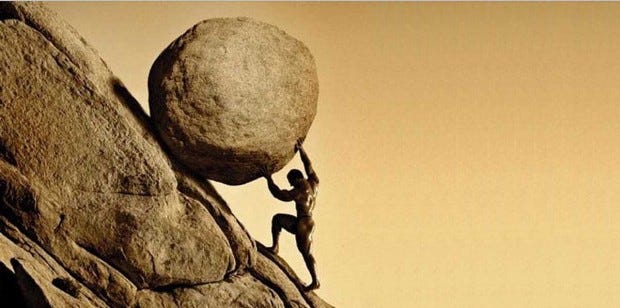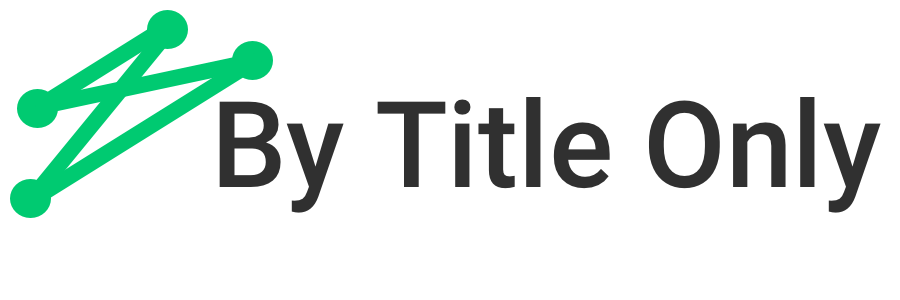Everybody loves a hero.
No matter how many times we see it, the battle between hero and villain never becomes cliche.
It’s the oldest story in history. Just ask the Aztecs, Incas, and ancient Egyptians.
(Editor’s Note: If you actually have the ability to ask those groups questions, maybe we should start with a few others.)
If you want to go further back, pick up The Odyssey or The Iliad or, you know, the Bible, for some really ancient hero vs villain shenanigans.
In fact, the entire entertainment industry is pretty much supported by pumping out content about battles between hero and villain. Sure there are other storylines, but the vast majority of the biggest, most popular media properties are based on heroes overcoming villains.
JK Rowling generated billions off this theme with Harry Potter.
The Star Wars franchise means nothing without the heroic Luke Skywalker battling Darth Vader, the very archetype of villainy.
Even Dorothy would simply be going on a somewhat psychedelic stroll down a bumpy yellow road if it weren’t for the villainous Wicked Witch that turned the young Kansan into a hero.
Come to think of it, the entire Marvel Comics empire wouldn’t exist if it weren’t for battles between heroes and villains.
Here’s the problem: this is all a piss poor model for leadership.
The Two Types of Heroes
We are raised from an early age to believe that people are viewed as heroes because they defeat villains. Books, cartoons, games, and every other media channel perpetuate this concept.
Think back to the old cartoons: Tom and Jerry, Sylvester and Tweety, Wile E Coyote, and the Roadrunner. Even The Powerpuff Girls and Paw Patrol.
We all had this model ingrained in us from an early age: to be a hero you must defeat the villain.
But that’s not how life works.
When it comes to reality, there are two types of heroes. One exemplifies great leadership and the other is a model for crappy leadership.
Let’s first talk about the bad one cause that’s my whole point in writing this.

The Misled Hero
There is a type of person who gets their self-worth through adulation. They need to be viewed as the hero in order to feel good about themselves.
This is fairly common and we all have at least a little bit of this in us. We want to be acknowledged and recognized for our accomplishments. Some of us even start writing newsletters because of it.
(Editors Note: Speaking for a friend, of course)
However, there is a subset of this personality that believes too much in the myth of Hollywood. They believe that nobody can be a hero without a villain to conquer.
But there’s a catch. Rarely does a villain actually exist. There are a lot more villains in entertainment and the media than there are in real life.
This is especially true in the workplace.
Sure not everybody will always get along at work, but with everybody focused on the same ultimate goal, it’s very odd that a person will actually act the villain.
This presents a problem for the person who needs to be a hero. Without a villain, that wannabe hero has nobody to overcome. And without overcoming a bad person, they don’t have much self-worth.
So they change things.
When no villain exists, they create one. Consciously or not, they start to treat one or more of their colleagues as if they were the villain.
Just so we are on the same page, this is bad.
This is the antithesis of good leadership.
In most instances, the person chosen as the villain is usually someone the wannabe hero feels most threatening to their success.
So they vilify that other person. They try to demean that person. Sometimes they try to get that person fired.
After all, they believe that if only everybody else recognized the villain, then everybody will adulate the hero for overcoming them.
I’m sure you’ve seen these people in your workplace.
I once wrote about Shaun, a chap I worked with a long while back. Shaun was a pretty good salesperson who always needed to be adored. The problem is that he was a complete asswipe.
If anybody threatened his role as the “sales hero”, that person became his ultimate villain.
Along comes me, another sales-driven person who was more senior than Shaun. Despite my desire (and job) to support his efforts, Shaun felt that I was a threat to his hero status.
What did he do? He made me the villain on the day that I started – before we even met.
It was good times – you can read more about that here.
Suffice to say, it’s hard to work with these types of misled heroes.

Working with a Misled Hero
In every case I’ve seen of the misled hero, they are the only ones blind to their behavior. They lack the self-awareness to see themselves from others’ points of view.
Though they believe themselves the hero, everybody else sees them as mean and petty and a pain in the tuchus to work with.
People are fearful of engaging with them. They avoid them and walk on eggshells when around them, worried that they themselves may end up the villain that day.
It’s hard to try and reason with the wannabe hero or, God forbid, argue with them – that behavior will just strengthen their belief that you are villainous.
More often than not, they feel that they could be even better, if only they were to get the respect they insist they deserve.
Unfortunately, they are marred by Hollywood and don’t understand what it really means to be a hero.

What it Really Means to be a Hero
It’s funny to me that we love the hero-villain paradigm so much because the most successful leaders act in exactly the opposite manner.
Instead of looking for villains to conquer, the true hero looks for people to support.
Heroic leaders don’t vilify others, they seek to understand and connect with them. They try to engage with them in ways that empower and acknowledge the other.
The true hero is the leader that works to make all of their subordinates feel like the actual heroes.
It was way back in the 6th century BC when Lao Tzu said:
A leader is best when people barely know he exists, when his work is done, his aim fulfilled, they will say: we did it ourselves.
Being a hero is not about tearing other people down or rising in anger because you believe others are blocking your success. A hero is the one that tries to build everybody up and moves forward with integrity, despite the forces who are trying to break them.
The true heroes are the ones that don’t wear capes – they create the capes for others.
So if this resonates with you, maybe you try and forget all of the misled models of hero-hood that have been ingrained in your brain.
The only villain trying to get you, is you.
Somewhat Relevant Quote
“True heroism is remarkably sober, very undramatic. It is not the urge to surpass all others at whatever cost, but the urge to serve others” at whatever cost.”
Arthur Ashe, Tennis god and all-around superhero
Random News
Willy Woke-a – Turns out the chocolate king is woke
Smashed – Let’s say you broke a $42k sculpture by mistake
Mini-Picasso – He’s 11. He made $1.3m last week. How’d you do?
HIV, BuhByeV – Turns out there might be a cure for HIV after all
